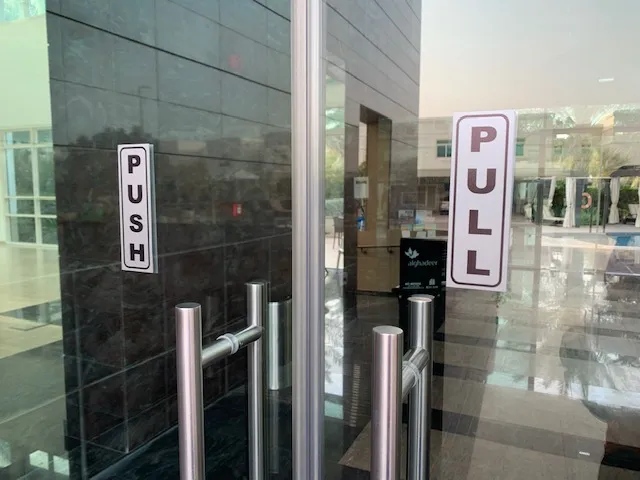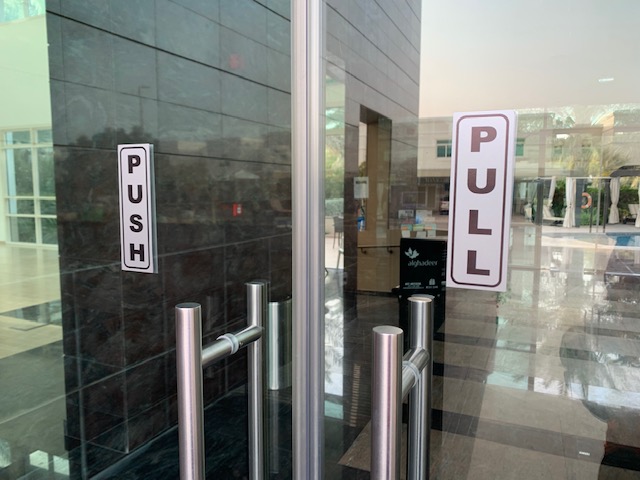I was about to go through this door the other day where you could PUSH one door or PULL the other in order to enter the building. It made me think about situations I have faced within teams as a leader or coach where action is needed. Teamwork is all about achievement. That’s why teams exist. TO get things done, to move from ‘A’ to ‘B’. Teams exist in ‘A’ and want to get to their ‘B’, which is what I help them do as a coach.

All too often, we confuse the need for change with a desire to PUSH. There’s an impression that action needs to happen all of the time in order to get the team from ‘A’ to ‘B’. Motion, energy, movement. But when is it sometimes necessary to not PUSH but instead, PULL? Do you need to be passive rather than active?
In the past I have used a team game that involves getting the team to hold strings that are suspended from a metal frame which manoeuvres a device that can pick up a bottle and move it from one spot to another on the floor. The 16 strings are evenly distributed amongst the team so everyone has one or some strings to pull. All the strings need to be used in a co-ordinated effort to achieve the aim. What usually happens though when the team begins the exercise is everyone starts pulling on their strings. What they don’t realise is actually some people need to let go of their string to move the device in a certain way. If everyone pulls at once, it doesn’t work.
This is what happens all too often in teams for real. Members think it is necessary to only PUSH, all of the time. This happens for example with communication – people tend to think of communication as talking – pushing – and they forget the pulling part – listening. Sometimes, when coaching teams, I encourage silence and reflection to allow the team to find out what is available in the silence. We need to pull from outside of us and outside the team’s current existence. Insight and information is available there that could not be accessed if everyone is only pushing.
HOW YOUR TEAM CAN PULL
Try getting your team to pull now and again, instead of pushing all the time. Here’s three ways that you can do that:
Get Curious
Try being more inquisitive about things. Challenge the status quo, be curious, ask lots of questions. Why are things done that way? Is there a better way? You’d be surprised what you can find if you open your minds and pull things towards you.
Listen
Sounds simple, but active, ostentatious listening is often overlooked as a necessary skill in teams. We listen to a certain extent, but when do we do it to the exclusion to all else? Put the phone away – not just on the table, even face down, in front of you. It shows you are open to distraction. Put it away or leave it in another place. Look the person in the eye and give them your full attention. Ask clarifying questions to ensure understanding. And just listen! Don’t feel the need to speak all of the time.
Connect Outside the Team
Research has shown that the best teams are ones that connect outside of their own existence with other teams around them. Build relationships and connections with the teams around you in order to access knowledge and information that is not available to you internally.
HOW TO GET IN TOUCH
Call me on +971 (0)50 559 5711 or send me a message
